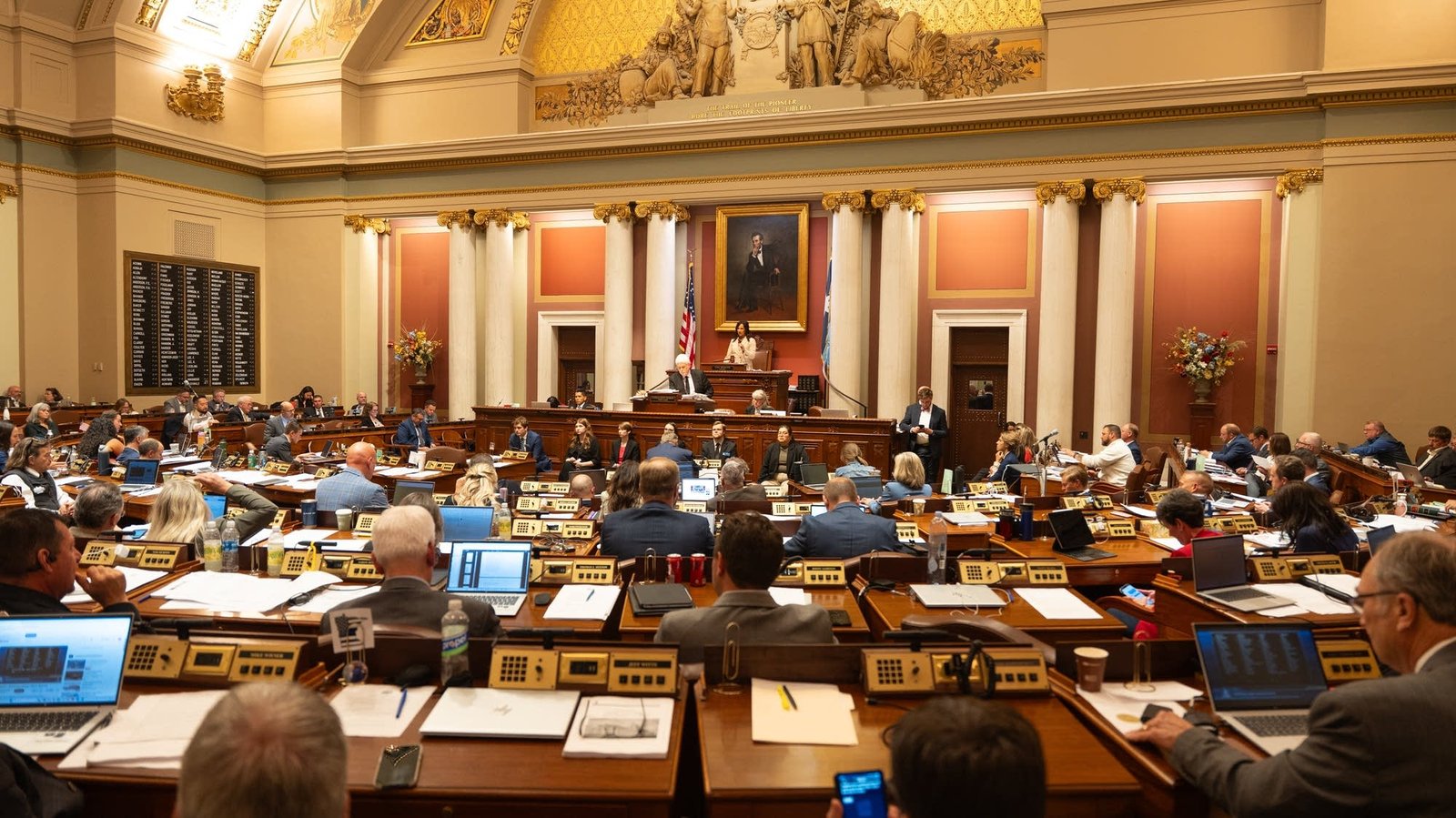This year’s legislative session was filled with one surprise after another. But there was one constant sprinkled throughout committee hearings and bill filings: artificial intelligence.
2025 was another year that saw dozens of AI-related bills proposed. None passed on their own. Only two mentions of AI were included in an omnibus that went to the governor. Other bills are back at the drawing board to be reevaluated by legislators as they move into the offseason and prepare for next year.
Sen. Judy Seeberger, DFL-Afton, proposed SF1577 which aims to criminalize the creation, possession or distribution of AI-generated child sexual abuse material.
It was brought to Seeberger by the Bureau of Criminal Apprehension. And had the bureau not brought it up, she doesn’t know when it would have crossed her radar.

Seeberger said her reaction was first "mostly surprised, like ‘oh my gosh, I didn’t realize this was even a thing.’” She said other lawmakers were also surprised by the need for legislation, but people quickly grew to appreciate getting the ball rolling.
“It’s not easy to talk about. It’s not a pleasant subject to talk about, but it’s necessary,” Seeberger said.
Seeberger considers herself less familiar with AI than other legislators like Sen. Erin K. Maye Quade, – DFL-Apple Valley. Quade has been working on legislation addressing the environmental impacts of AI and banning the use of AI in health insurance utilization review processes.
Professor Eran Kahana at the University of Minnesota researches and teaches about the intersection of artificial intelligence and law. He tracks changes and improvements to AI under four dimensions: scope, scale, sophistication and speed — dimensions he learned from computer security professional Bruce Schneier.
“AI makes it easier to do bad things quicker, at a higher level of sophistication and a higher level of scale. The law is really not designed to deal with that,” Kahana said.
He says the world of AI governance and legislation poses many conversations that have yet to be had.
“The law will always be behind the curve. The law is not designed to be proactive. The law is reactive, and that’s a good thing,” Kahana said.
He says copyright, privacy, liability and education regulations should be next to come. One of the most alarming concerns is a lack of awareness of the impacts AI has and could have on privacy.
“As a society, we don’t really appreciate how AI is impacting our privacy, and there is something to be said that maybe we really don’t care,” he said.
But one way to address the gap Kahana poses would be by mandating an AI competency requirement in schools. Similar to media literacy or a minimum math requirement, it would allow a certain mandated amount of AI education.
“It’s an essential skill to have, like learning to pour yourself a bowl of cereal with milk,” Kahana said. “Everybody needs to know how to do this. Everybody needs to understand certain things about AI.”
While a requirement like this is easier said than done, it is one way to ensure future generations are set up to understand AI as it is integrated into every sphere of their life.
While Seeberger knows the bill she proposed is a starting point, she will continue to keep an eye out for future AI-related needs.
“We have to dive into this stuff, and we have to ensure that the laws that we’re enacting not only address the behavior that we’re trying to address, but are also constitutionally sound, legally sound and do what we’re trying to do,” Seeberger said.
The first portion of the proposed SF1577 is tied into part of omnibus public safety legislation awaiting Gov. Tim Walz’s signature. A second part of the bill, that proposes to restrict the possession of child-like sex dolls, is going through further drafting.
Other bills were proposed looking into AI disclosure requirements and prohibiting dynamically set or adjusted product prices.




